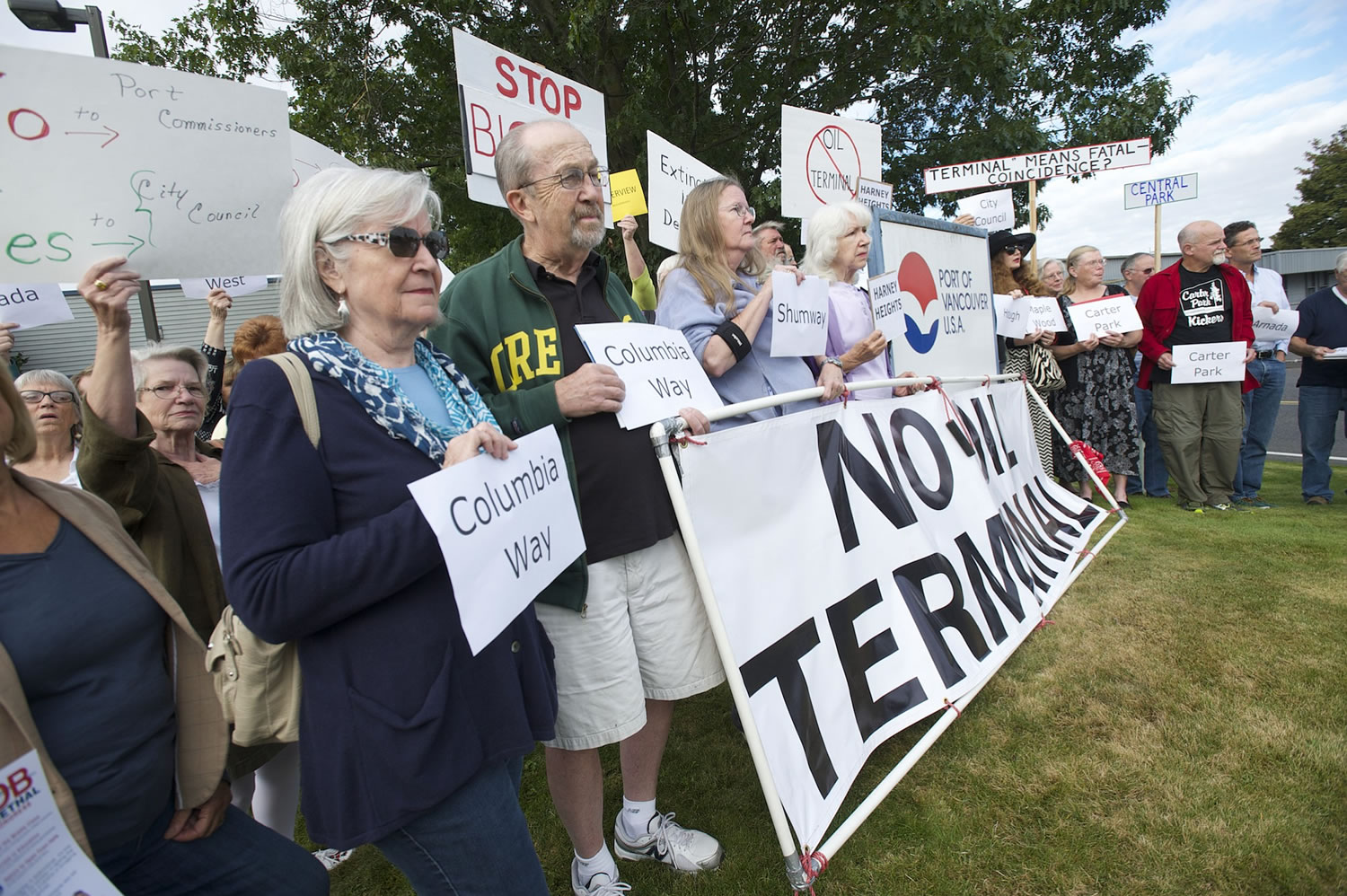The Port of Vancouver’s tight lid on the public’s business may be coming off.
Sparked by the port’s insular handling of a lease for what would be the nation’s largest rail-to-marine oil transfer terminal, reform-minded critics are pushing the port to embrace a more transparent approach to making decisions. Some are jumping into the race for an open seat on the port commission, hoping to change the organization from within.
The port’s pursuit of the oil terminal seems like a no-brainer, given that ports nationwide handle a variety of commodities. Yet the proposal by Tesoro Corp., a petroleum refiner, and Savage Companies, a transportation company, jangles more than a few nerves in Clark County and elsewhere. Defective tank cars, oil spills, volatile crude from North Dakota’s Bakken oil fields, a string of explosive oil train accidents – those and other factors have stirred opposition from many quarters, ranging from the city of Vancouver and Washougal’s school district to Native American tribes and a private developer of Vancouver’s waterfront.
Others have stayed away from the fray over the siting of oil terminals. The Port of Portland, no stranger to a variety of cargoes, backed off the oil-by-rail market, announcing last spring that it didn’t have “sufficient answers” to environmental and safety questions. For its part, the Port of Vancouver on April 28 approved a resolution supporting proposed federal legislation to immediately ban the use of unsafe tank cars, among other beefed-up safety steps. The port’s resolution also expressed support for a recently passed state bill that includes an oil spill response tax to cover rail tank cars.




